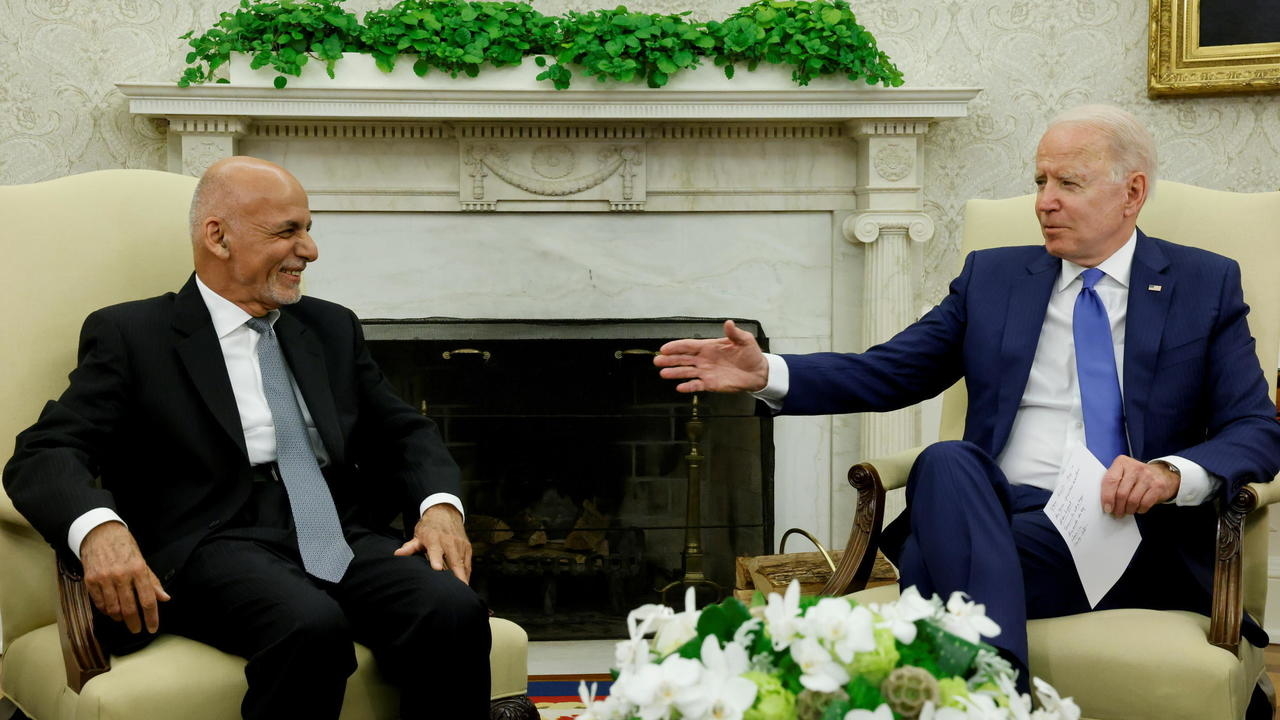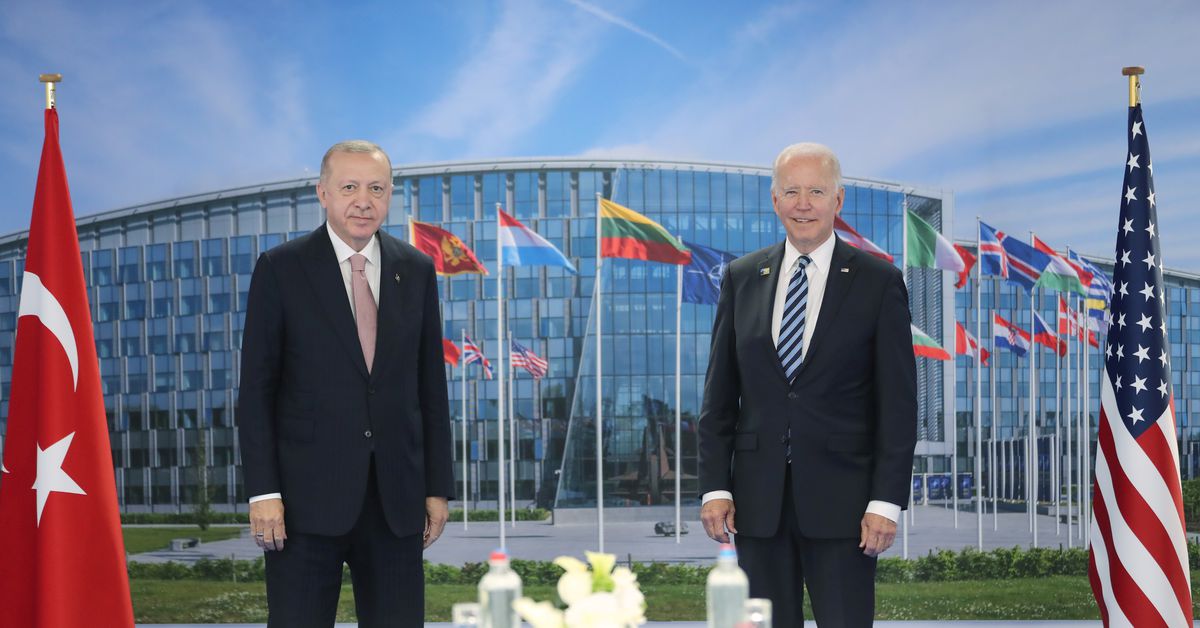The US withdrawal from Afghanistan has given the regional powers including Pakistan, Iran, and Turkey an opportunity to exploit the political vacuum in the war-torn nation.
According to a New York Times report, around 3,500 troops remain in the country as the September 11 deadline comes closer, a date that marks the 20th anniversary of the 9/11 attacks. Going by the pace of the withdrawal, US troops and allies might leave by the end of July.
Several security experts and US officials have highlighted the need to protect Afghanistan from spiraling into cycles of violence and becoming a breeding ground of terrorist outfits under the control of the Taliban.
Last week, Afghanistan President Ashraf Ghani met US President Joe Biden in Washington to reinstate intra-Afghan dialogue in hopes of ending Talibani violence and concluding a peace deal.
While Biden assured the Ghani and his countrymen that “the US will stick with them” amid deteriorating conditions, the political vacuum post US withdrawal is inevitable.
Pakistan-Turkey-Iran Troika
The three key players in Afghanistan’s neighborhood that have an upper hand in influencing the political and security imperatives in a post-withdrawal state are Pakistan, Iran, and Turkey.
All three countries share warm ties with each other and view Afghanistan as a gateway to resource-rich Central Asia.
Pakistan sees Afghanistan not just as a strategic partner but also as a ground to negate India’s gains in the neighborhood.
On the other hand, Pakistan is accused of harboring Taliban insurgents after the US toppled the Taliban-led government in 2001 in hideouts near the tribal borders.
The EurAsian Times earlier reported how Pakistan is wary of a powerful Taliban-led government that is likely to pry upon Pakistan’s instability and challenge its national security.
Analysts also suggest that Pakistan’s outright rejection of US military bases in the country is likely due to pressures from China and Iran.
Iran & Turkey Eying Share Of Power
Meanwhile, Iran’s interests stem primarily from replacing its arch-rival US in establishing a foothold in the region. Apart from cultural reasons in protecting a Shi’ite Hazara minority in Afghanistan, Iran hopes to build security links with the Afghanistan government whether Taiban or no-Taliban to attain political goals.
In the case of a worn-torn Taliban state, Iran will have to face spillover effects of looming national security threats and an influx of Afghan refugees.
“[Vaccum] is a recipe for a new war in Afghanistan and we in the region cannot tolerate, with 3 million Afghan refugees in Iran, we cannot bear more burden,” Iranian Foreign Minister Mohammad Javad Zarif said in a discussion with India and Afghan officials.

Turkey under nationalist Recep Tayyip Erdogan is looking to expand its footprint and play a greater role in the region.
On June 20, Turkey held a trilateral dialogue with Iran and Afghanistan to reiterate an “inclusive Afghan-led and Afghan-owned political process”.
Turkey, also a NATO ally, has deepened diplomatic and security interests by sending troops and training Afghan soldiers as part of coalition forces. The country is a co-founder of the Heart of Asia-Istanbul Process, an Afghanistan-focused regional organization launched in 2011.
After the deadlock of the Doha talks, Turkey offered to mediate and hold peace dialogue with the Taliban in April.
In the recent Biden-Erdogan meet, Istanbul offered to provide security to the Kabul airport post-withdrawal, the main entry and exit point for high-level officials, diplomatic staff, and aid workers, in return for continuing US financial aid.

“We intend to stay in Afghanistan depending on conditions. What are our conditions? Political, financial, and logistical support. If these are met, we can remain at Hamid Karzai International Airport,” Turkish Defense Minister Hulusi Akar said, as reported by Istanbul-based Daily Sabah.
The Taliban, however, view Turkey’s involvement as a violation of the 2020 Doha Agreement, under which Turkish troops ought to withdraw completely. The peace conference was postponed after the group refused to participate and also opposed Turkey’s offer in guarding Kabul airport, citing the security of Kabul airport as the “responsibility of Afghans”.
The Taliban continue to forge ahead with its offensive and has seized more than 50 districts since May, including a strategic border crossing with neighboring Tajikistan. US intelligence recently warned of the possibility that the capital city Kabul may fall to the militant outfit within six to twelve months after the exit of security troops.
“The presence of foreign forces under whatever name or by whichever country in our homeland is unacceptable for the Afghan people and the Islamic Emirate (what Taliban called the state during their rule in 1996-2001),” Taliban said referring to reports on the possibility of stationing some troops for security and intelligence reasons.
Other Players in the Region
Apart from Islamic nations, India, China and Russia also remain key players in the peace process as well as the post-withdrawal scenario.
India has expressed its concern over the rising violence since Biden’s announcement of the withdrawal deadline.
#Taliban fighters reached the gate of Mazar-e-Sharif, the largest city in the north of #Afghanistan, this afternoon, posing for photo. Govt says its forces pushed the insurgents away but the fact they can get to the gate of a major city so easily speaks a lot about the situation. pic.twitter.com/Vh2xistBZc
— Sharif Hassan (@MSharif1990) June 21, 2021
At the UN Security Council debate, India’s Minister of External Affairs S. Jaishankar called for zero tolerance for terrorism in all its forms and manifestations and preservation of constitutional democratic practices in a political settlement of Afghan peace.
“A durable peace in Afghanistan requires a genuine ‘double peace’ — that is, peace within Afghanistan and peace around Afghanistan. It requires harmonizing the interests of all, both within and around that country,” he said.
China’s interests stem from economic and security. China aims to expand its ambitious China-Pakistan Economic Corridor (CPEC) to Afghanistan as it provides a strategic access point to Central Asia.
Containment of extremism and militancy among Uighur Muslims in China’s Xinjiang province is another reason why China is eyeing a significant role in post-withdrawal Afghanistan.
Russia enjoys considerable influence and control over former Soviet states in Central Asia. It also has a Cold War history with Afghanistan, when the USSR invaded the country in 1979, which led to the creation of several insurgent groups that later evolved into powerful terrorist organizations.
All external players are hopeful for a peace deal and power arrangement between the Taliban and the Aghan government since the emergence of ISIS in the region is a common threat.




